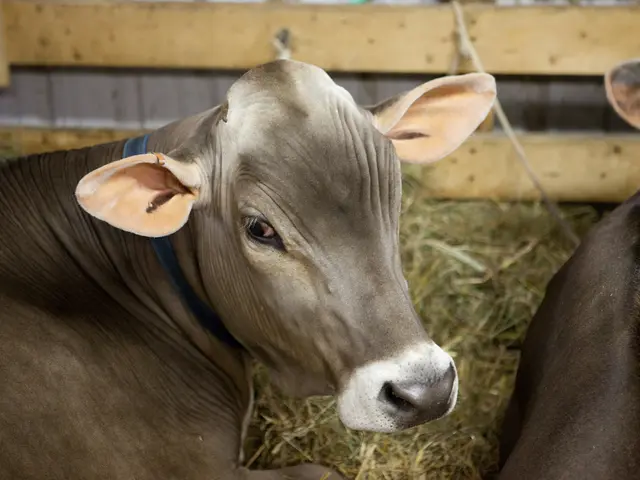Strategies for Embracing the Grandparent Role for the First Time
Stepping into Grandparenthood: A Guide for First-Timers
Embracing the joys of watching your kids become parents can be a fantastic adventure. However, this transition may come with uncertainty, making you question how to best support your kids and form a meaningful bond with your grandkids. Follow these practical tips to confidently navigate your new role, fostering a healthy family dynamic while getting the most out of this exciting phase.
Tips for First-Time Grandparents
Becoming a first-time grandparent is a life-changing experience that requires patience, understanding, and respect.
#1: Honor Your Kids' Parenting Choices
Remember that every generation has its unique approach to parenting. With various feeding routines, screen time, and sleep schedules in play, it's essential to respect your adult children's parenting decisions. Offer encouragement, but avoid openly questioning or suggesting alternatives. Supporting your kids in their choices helps strengthen family bonds and makes them feel more confident in their approach to parenting.
#2: Offer Practical Support
The early days of parenthood can be overwhelming. The best help you can offer your kids is being practical. You can ease some of their burdens by helping with meals, running errands, and taking care of the new baby. Avoid encroaching on their space; instead, ask them how you can assist. Meeting their needs demonstrates that you're committed to being a trusted ally.
#3: Form a Strong Bond with Your Grandkids
The bond between grandparents and grandkids is special and irreplaceable. Building this connection begins from the first moments and grows stronger with every interaction. Engage in activities like rocking, reading, and singing with your grandkids to strengthen your bond. As they grow, share their interests and celebrate milestones together. These moments will create lasting memories and nurture your unique relationship.
#4: Embrace Your Role
The grandparent experience can differ, depending on family dynamics and locations. Be open-minded and flexible as you discover your role within the family. It may be more or less involved, but focus on building a connection that respects everyone's needs.
#5: Share Family Stories and Traditions
Sharing your family's history with your grandkids creates a sense of belonging. Introduce them to cherished heirlooms, stories about their parents, and family recipes. These traditions not only foster a sense of identity but also bind the family together through shared values and stories.
#6: Learn Modern Parenting Trends
Today's parents have access to a vast array of parenting philosophies and approaches. Acquaint yourself with these trends to offer better support to your kids. Understanding the differences, such as attachment parenting and baby-led weaning, shows your willingness to adapt and respect their choices.
#7: Provide Advice When Ask For
Though your experience as a parent is valuable, avoid giving unsolicited advice. Your suggestions may conflict with what healthcare professionals have suggested. If your advice is asked for, ensure it aligns with their philosophy and is respectful.
#8: Use Positive Language
New parents can be sensitive and self-critical. Choose your words carefully when interacting with them. Avoid making critical or judgmental comments. Instead, focus on being positive and supportive, helping build their confidence and strengthen your relationship.
#9: Set Healthy Boundaries
Becoming a grandparent is a precious gift, but it's important to establish boundaries to ensure you can fully enjoy your new role without feeling overwhelmed. Communicate your limits and energies, allowing you to engage meaningfully without risking burnout.
#10: Embrace the Journey
Grandparenthood is filled with memorable moments, but it can be challenging at times.Instead of striving for perfection, focus on being present and embracing the journey. Treasure each milestone, knowing these moments will stay with you and your grandkids forever.
Welcoming Grandparenthood
Navigating grandparenthood requires love, conversation, and adaptability. By being mindful and respectful, you can build a strong bond with your grandkids and continue strengthening your relationship with your adult children. As you embark on this beautiful and transformative chapter, remember to embrace the joys, accept the challenges, and cherish the memories that will last a lifetime.
If you encounter difficulties with boundaries or family relationships, seeking support from a therapist can help you find balance and joy in this special chapter. Our platform offers online therapy covered by Medicare, allowing you to access affordable and accessible therapy whenever and wherever you need it. Start your therapy journey today to gain the support you need as a newly minted grandparent.
Resources:
- Polemeno V. Perinatal Education and Grandparenting: Creating an interdependent family environment. Part I: Documenting the need. The Journal of Perinatal Education. 1999;8(2):28-38. doi:10.1624/105812499×87097.our website articles are written by experienced mental health - wellness contributors; they are grounded in scientific research and evidence-based practices. They are extensively reviewed by our team of clinical experts (therapists and psychiatrists of various specialties) to ensure content accuracy and adherence to current industry standards.Our aim at our website is to provide accurate, valuable, and objective information on mental health -related topics to help readers make informed decisions.
- To better support your adult children as parents, consider staying informed about modern mental health trends in parenting through science, health-and-wellness, and lifestyle resources.
- As you foster a strong bond with your grandkids, you might find online therapy resources valuable in addressing any challenges that arise, especially during difficult conversations about mental health.
- Embracing your role as a grandparent may involve adapting to new parenting philosophies, including those related to lifestyle choices like screen time and feeding routines – be inclusive and open-minded.








